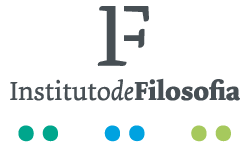MENTAL PROPERTIES: STRONGLY EMERGENT POWERFUL QUALITIES
From: 2017-12-05 To:2017-12-05
Thematic Line
Modern & Contemporary Philosophy
Research Group
Mind, Language & Action
MENTAL PROPERTIES: STRONGLY EMERGENT POWERFUL QUALITIES
Joaquim Giannotti
(PhD Student, University of Glasgow)
5 de dezembro 2017 (terça-feira)
13h30 | Sala do Departamento de Filosofia (Torre B - Piso 1)
Faculdade de Letras da Universidade do Porto
Entrada livre
Resumo: Causal Accounts of emergence proved successfully in demystifying the notion of strongly emergent property. According to these views, a strongly emergent property is distinctively causally efficacious and ontologically distinct in kind as compared to the physical property or collection of physical properties on which it depends on. At first impression, Causal Accounts offer a promising framework to elucidate the claim that mental properties are something which is over and above physical properties. However, I shall contend that Causal Accounts are inadequate to capture the ontological distinctness in kind of mental properties as compared to physical ones. My aim is to show that it is possible to overcome such an inadequacy by conceiving of mental and physical properties as powerful qualities. According to this conception, every mental property and every physical property is at once dispositional and qualitative. This allows us to formulate a condition for their ontological distinctness in kind. By integrating such a condition into Causal Accounts, it is possible to accommodate satisfactorily the case of strongly emergent mental properties. As such, my conclusion is that a conception of powerful qualities is a natural ally for the proponent of strongly emergent mental properties.
Imagem: Kazuo Nakamura, Inner Structure No 5 (1955)
Programa MLAG Research Seminars: https://ifilosofia.up.pt/activities/mlag-research-seminar-2017-2018
Organização:
Research Group Mind Language and Action Group (MLAG)
MLAG Seminars 2017-2018 (Sofia Miguens, Luís Veríssimo, Diana Couto, José Pedro Correia)
Instituto de Filosofia da Universidade do Porto - FIL/00502
Financiamento: FCT

